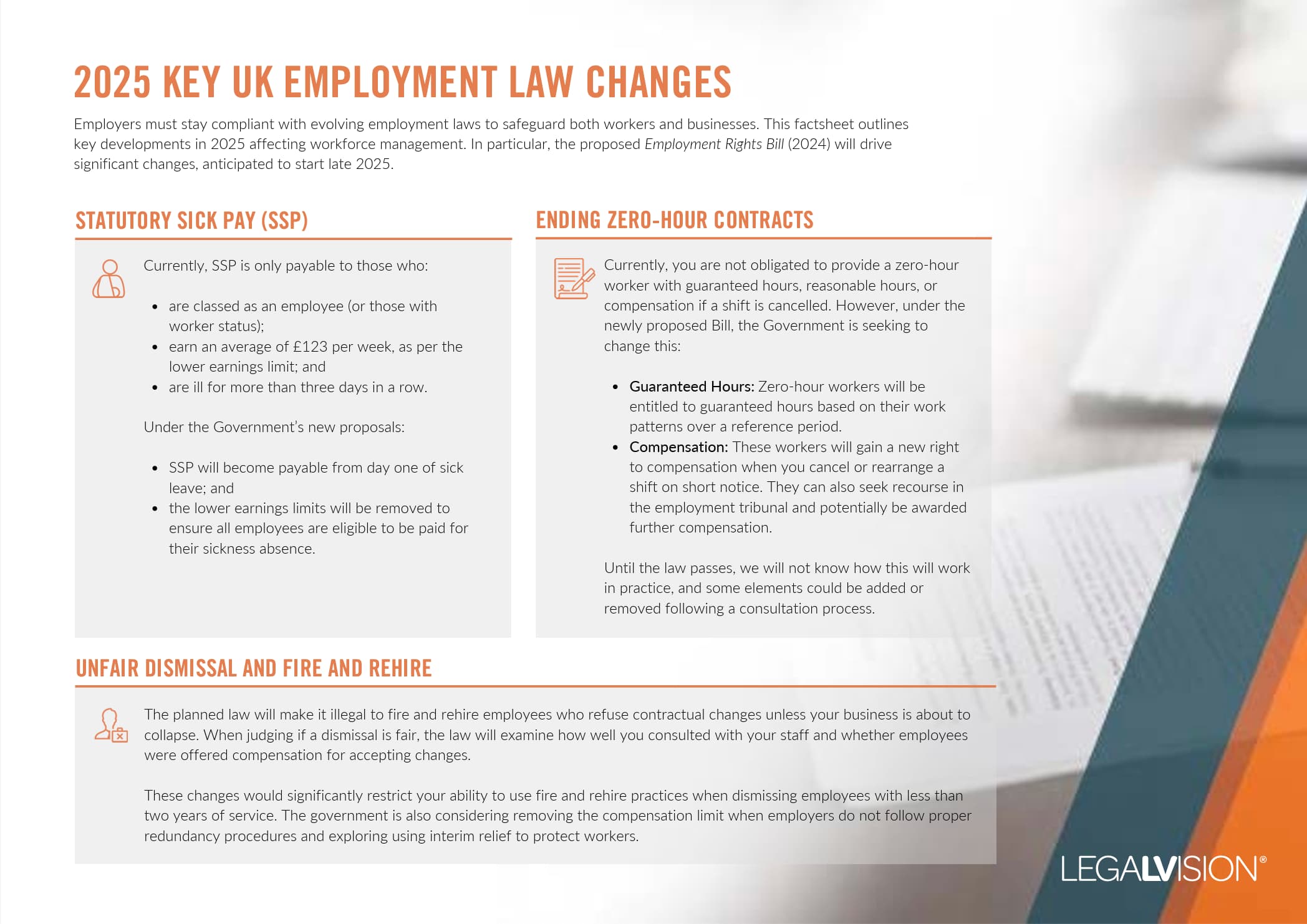In Short
- Employment contracts with restrictive covenants (non-compete, non-solicitation) and confidentiality clauses are critical for protecting trade secrets during and after employment.
- Secure physical access, robust IT systems, and monitoring tools minimise risk.
- Regular training fosters a culture of confidentiality and reduces the likelihood of accidental or malicious breaches.
Tips for Businesses
- Ensure employment contracts include enforceable restrictive covenants and robust confidentiality clauses.
- Use systems like key cards and multi-factor authentication to control access to sensitive areas and data.
- Conduct audits to update protection measures and ensure they remain effective against evolving threats.
Trade secrets are valuable business assets that require careful protection, especially in employment where confidential information is shared with employees to enable them to do their work. Successfully safeguarding these assets requires a comprehensive strategy combining effective terms in employment contracts and other legal considerations, as well as practical safeguards and technological measures. This article explores the best ways in which to protect trade secrets in an employment context.
Employment Contracts and Other Legal Considerations
The foundation of trade secret protection begins with well-drafted employment contracts. These contracts should clearly define confidential information and trade secrets, establish specific non-disclosure obligations during and after employment, and include appropriate non-compete and non-solicitation clauses.
Non-compete and non-solicitation clauses, taken together, are known as ‘restrictive covenants’. These clauses are designed to restrict former employees from engaging in activity that may harm a legitimate business interest you seek to protect.
Likewise, a non-solicitation clause can ensure that a former employee does not actively pursue your most valuable customers or solicit your highest-performing employees with the intention of recruiting them.
Confidentiality Clauses
Confidentiality clauses are not only used in the context of your relationships with your suppliers and third parties through appropriate non-disclosure agreements (NDAs). Employment contracts also contain confidentiality clauses and obligations restricting employees from disclosing business information obtained during employment.
You should carefully consider the definition and scope of confidential information in your employment contracts to effectively govern the non-disclosure of crucial business information.
Employment contracts also address ownership of intellectual property created during employment and provide for the return of confidential information upon termination.
Notably, these employment contracts must be carefully drafted to ensure enforceability under UK law, particularly regarding the ‘reasonableness’ of restrictive covenants.

This factsheet outlines key developments in 2025 affecting workforce management.
Practical Safeguards, Measures and Technology
Beyond employment contracts, practical security measures and safeguards are crucial. Physical security could include restricting access to sensitive areas using:
- key cards or biometric systems;
- visitor logging and escort requirements;
- clear desk policies; and
- secure document disposal systems.
Digital security measures are equally important, and these could encompass:
- robust IT systems;
- multi-factor authentication;
- employee-specific login credentials; and
- careful monitoring of data access and transfers.
Technology
Technology plays an increasingly important role in trade secret protection. You should implement appropriate solutions such as data loss prevention software, network monitoring tools, and access control systems. Mobile device management systems have become particularly important as remote work becomes more common.
Swift response procedures for suspected breaches are essential. This includes immediate investigation, documentation of evidence, and swift legal action where necessary. Following any breach, you should review security measures and implement improvements to prevent similar incidents.
Regular updates and reviews of protection measures ensure they remain current and effective.
You should maintain transparent systems for marking confidential documents, tracking information access and distribution, and recording security breaches or attempts.
Continue reading this article below the formEmployee Training and Awareness
Creating a culture of confidentiality is essential, regular employee training and awareness programs play a vital role in protecting trade secrets. Employees must:
- understand what constitutes confidential information;
- their legal obligations regarding confidentiality; and
- the consequences of breaches.
Training should cover best practices for handling sensitive information and security protocols. Training materials and policies should be updated regularly to reflect new threats and protection strategies.
Post-Termination of Employment Relationships
Exit procedures require particular attention when protecting trade secrets. You should:
- conduct detailed exit interviews;
- obtain written confirmation of the return of confidential information and company materials;
- remove system access; and
- remind departing employees of their ongoing obligations.
It is crucial to require confirmation of the deletion of work-related data from personal devices and to document the entire process carefully.
Key Takeaways
Ultimately, overly restrictive measures can hamper business operations, while insufficient protection leaves valuable trade secrets vulnerable. You should aim to implement reasonable and proportionate measures that effectively protect trade secrets while allowing the business to function efficiently by:
- drafting stringent fit-for-purpose employment contracts; and
- by developing and implementing effective practical and technological measures and safeguards.
If you need help reviewing or drafting new employment contracts, our experienced employment lawyers can assist you in ensuring they contain effective and reasonable restrictive covenants, confidentiality obligations and intellectual property clauses. For a low monthly fee, you will have unlimited access to lawyers to answer your questions and draft and review your documents. Call us today on 0808 196 8584 or visit our membership page.
Frequently Asked Questions
If the information is in physical form, you may lock it away and make it inaccessible to others absent express permission.
A famous example is the recipe for Coca-Cola, which is locked in a physical vault and has never been revealed.
We appreciate your feedback – your submission has been successfully received.











